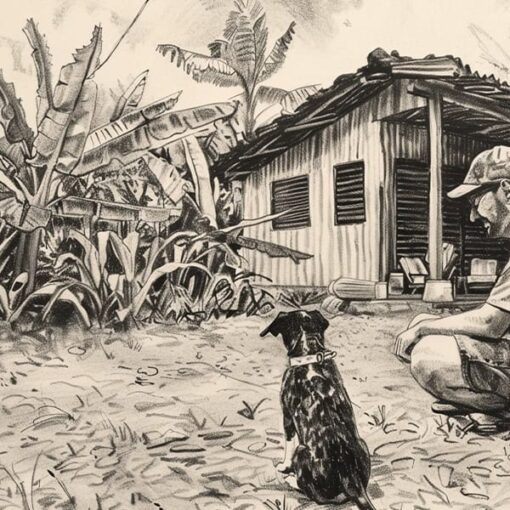Today we meet Costa Rica’s rattlesnake, the Central American rattlesnake. It’s a beautiful serpent complete with potent venom, a unique warning system, and the ability to curse people with bad luck, according to Tico lore.
The Central American rattlesnake (Crotalus simus) is also known as the Middle American rattlesnake in English. In Spanish, it’s the cascabel centroamericana or cascabel neotropical, but most people just go with cascabel.
There’s really no need to get specific with the name because this snake is the only rattlesnake in the country, so generally it’s not being confused with anything else. Within Costa Rica, it’s found mostly in the drier parts of the country in Guanacaste. Historically, there have been sightings stretching over to the Central Valley as far over as Cartago, but they may have been extirpated from those areas.
Central American rattlesnakes are robust, pretty snakes. Adults can grow to well over five feet long, but the average adult is between three and four feet, with males being larger than females on average. These snakes are adorned with a pair of dark stripes down the neck, a diamond-shaped pattern down their backs, and dark tails that end in the famous rattle. Newborn snakes come equipped with a little nub of a rattle. The rattle grows in length after each shedding of its skin.
The snake’s rattle is an early warning system. These snakes aren’t particularly aggressive and would prefer to warn other species of their presence with a rattle of their tail to avoid confrontation. I’ve also learned that the rattle has cultural significance. I once found a pile of rattlesnake bones complete with a large rattle in the forest of a wildlife rehabilitation center where I worked. I happily shared my find with the staff of the facility who wouldn’t let me keep the rattle at the center because they said it was very bad luck.
A maintenance guy who saw me displaying my find pulled me aside and told me that if I threw the rattle into a bar full of patrons, everyone would start fighting. Unable to keep the rattle at the center, I took it home to show my wife and told her everything that I’d learned about it. It only took a few weeks of bad luck before she made me return it to the forest. To do this day, every time we are going through a rough stretch, she demands to know if I have secret rattle hidden somewhere.
If the warning of the rattle is not heeded, Central American rattlesnakes are able to inflict a venomous bite. The venom of these snakes is highly studied in scientific literature. I tried venturing into the articles to bring back an interesting tidbit for you, but the study of snake venom comes with a vocabulary that would take me days to decipher. In general, it seems as though bites from these snakes are quite uncommon in Costa Rica and though they are extremely painful and involve a lot of swelling, with proper medical care most people recover completely.
I have never recorded a Central American rattlesnake with my camera traps, but I hope one day it will happen. I always keep them in the back of my mind while stomping around in the wilds of Guanacaste. I’m definitely guilty of overreacting to the buzz of an insect that I mistook for the rattle of an angry snake. I’ve seen a rattlesnake once. It was slowly crossing a dirt road in the late afternoon. I recognized it immediately from the seat of my truck and got out to respectfully investigate. It was a beautiful snake that calmly crossed the road and allowed me to take the quick cellphone video that you can click on below.
About the Author
Vincent Losasso, founder of Guanacaste Wildlife Monitoring, is a biologist who works with camera traps throughout Costa Rica. Learn more about his projects on facebook or instagram. You can also email him at: vincent@guanacastewildlifemonitoring.com
Source link
Tico Times



